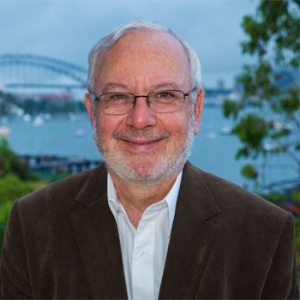Abstract:
There exist many theories regarding the basis of gait inertia and instability for people with Parkinson’s disease (PD). This presentation will use a video to demonstrate an alternative explanation for this occurrence together with a very simple mode of intervention, based on the novel use of a walking stick, as an aid to mobility. The hypothesis is based on the gait inertia and instability which occurs as a consequence of the rigidity that accompanies PD and results in a slow response to disturbance of balance which translates to a propensity to falling, when such imbalance occurs, as occurs to all people, including those who do not have PD. The person with PD lacks the capacity to accommodate and compensate for that disturbance of balance and thus is prone to falls and self harm. Such difficulty with balance, due to failed righting reflexes and the ability to protect against falls, causes the person to experience a fear of moving forward and this can result in inertia of gait and the need for intervention to reinstate a level of confidence. What this video show is that the proper use of a walking stick has the capacity to overcome much of the fear of falling by acting as an adjunct to moving the ‘centre of gravity’ forward when walking. It acts by providing a different form of intervention which is simple, inexpensive and based on common sense which allows a new level of reassurance which supports the patient’s enhanced mobility in a very simple fashion that employs a different way to walk with the aid of a walking stick and as a consequence returns a level of confidence which the patient has lost.
What will audience learn from your presentation?
• The audience will gain a new perspective on the possible cause of gait inertia and falls for people with PD.
• The video will demonstrate the capacity to compensate for failed righting reflexes.
• The presentation explains that which affects people with PD in a different and very simple fashion that all clinicians can instigate within their practices without significant expense.
• This presentation has the potential to change the way clinicians treat their patients with PD without cost to them other than patient education.
Biography:
Roy G. Beran is trained as a consultant neurologist and accredited sleep physician, in addition to working within legal medicine, military medicine and aviation medicine. His qualifications include: MBBS, MD, FRACP, FRACGP, Grad. Dip. Tertiary Ed., Grad. Dip. Further Ed., FAFPHM, FACLM, FRCP, FAAN, FACBS, B Leg. S, MHL and FFFLM (Hon). He is registered with the Australian Health Practitioner Regulation Agency (AHPRA) as a specialist in Neurology, Public Health and Sleep Medicine and was a Designated Medical Examiner for the Civil Aviation Safety Authority, a medical assessor for Dispute Resolution for the State Insurance Regulatory Authority and an assessor for the Workers Compensation Commission of New South Wales (NSW). He is a Conjoint Professor of Medicine at the University of NSW; Professor in the School of Medicine at Griffith University, Queensland; and Professor, Chair, Medical Law, Sechenov Moscow 1st State University, Moscow, Russia. He was the inaugural Visiting Professor at the International Research Institute of Health Law Sciences at the Southern Medical University, Guangzhou, Guangdong Province, China. He was also a visiting professor to the Macau University and is co-editor of the textbook, ‘Legal Liability in Asia and Australasia’, with Prof Raposo from that university.
He is: a founding Fellow of the Australasian College of Legal Medicine; a Past President of the College, having stepped down in 2011, while remaining on Council, and was awarded the second ever Honorary Life Fellowship of the College. In 2019, he was appointed as ‘Co-Head of Faculty’ to convene and co-ordinate the College’s training courses throughout Australia. He is the Australian Governor and was the Secretary General and remains a Vice President of the World Association for Medical Law (WAML), having served on the Organising Committee of numerous World Congresses on Medical Law, presided over the World Congress, in Sydney, in 2004, and successfully bid to host the World Congress, to be held on the Gold Coast, Queensland, in 2022. He was the first Honorary Fellow of the Faculty of Forensic & Legal Medicine of the Royal College of Physicians (London).
In Neurology, he is: a Fellow of the Royal Australasian College of Physicians; a Fellow of the Royal College of Physicians, Edinburgh; Corresponding Fellow of the American Academy of Neurologists; and a Member of the Australian and New Zealand Association of Neurologists. He is a Member of the Australasian Sleep Association, serving on various committees thereof. He pioneered the conduct of clinical trials and undertaking research within private practice, having been principal author in publications which included leading academic/tertiary referral institutions. He has published more than 360 papers, book chapters and letters to the editor, presented in excess of 400 papers at national and international meetings and written or edited 17 books, including ‘Legal and Forensic Medicine’, and is on numerous editorial boards, including being the editor in chief of the international journal, Medicine and Law, for the WAML.
His research interests include: Concussion; Epilepsy; Legal Medicine; Stroke; Sleep; Neuroepidemiology; and Medical Education.
He was an officer in the Royal Australian Navy Reserve (holding the rank of Commander) and was awarded membership of the general division of the Order of Australia, in 2015.




